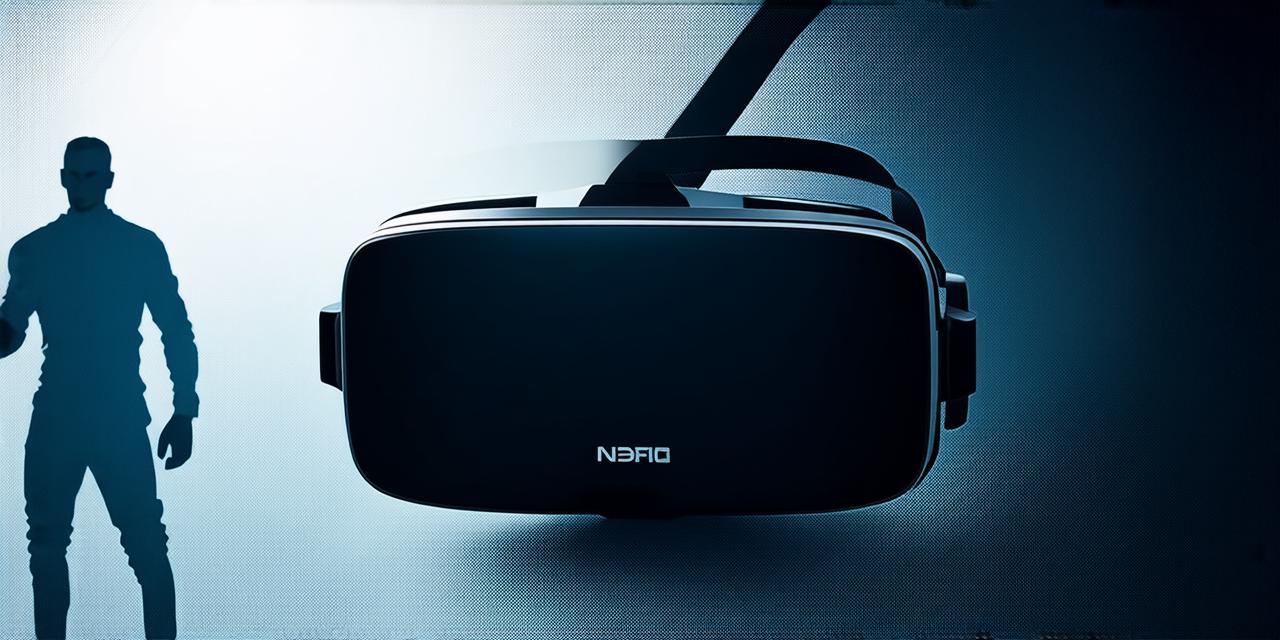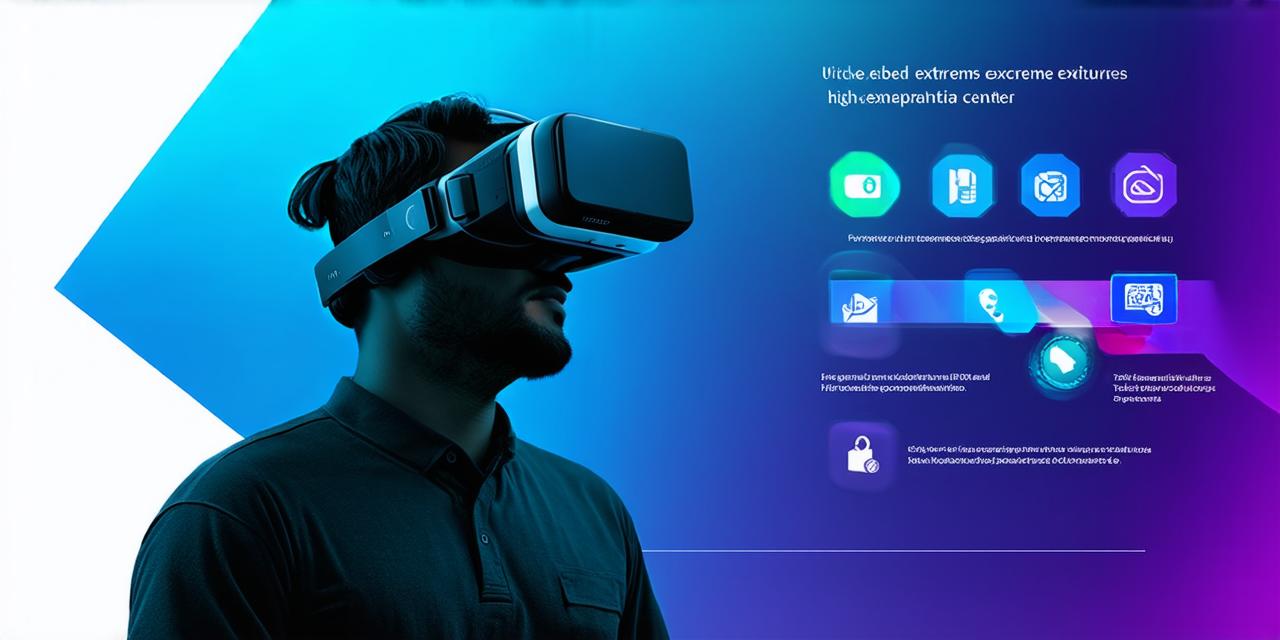
Treating Anxiety Disorders with VR Therapy:
Anxiety disorders are a common mental health issue that affects millions of people worldwide. Traditional methods of treating anxiety involve talk therapy or medication, but these approaches can be limited by factors such as cost, availability, and patient resistance. VR therapy offers a more immersive and engaging approach to treating anxiety that has shown promising results.
VR exposure therapy is one of the most popular forms of VR therapy for anxiety disorders. This therapy involves exposing individuals to virtual environments that simulate real-life situations or scenarios that trigger their anxiety, such as public speaking or flying. By gradually exposing them to these situations in a controlled and safe environment, VR exposure therapy can help individuals develop coping skills and overcome their fears.
A study published in the Journal of Consulting and Clinical Psychology found that VR exposure therapy was as effective as traditional cognitive-behavioral therapy (CBT) for reducing symptoms of social anxiety disorder. Another study published in the Journal of Anxiety Disorders found that VR exposure therapy was effective in treating panic disorder, a type of anxiety characterized by sudden and intense fear.
Treating PTSD with VR Therapy:
Post-traumatic stress disorder (PTSD) is a mental health condition that can develop after experiencing or witnessing traumatic events such as natural disasters, accidents, or violence. Traditional treatments for PTSD include talk therapy and medication, but these approaches can be challenging for individuals who struggle with memory or avoidance of triggering stimuli.
VR therapy offers a safe and controlled environment for exposure to trauma-related stimuli, which has shown to be an effective treatment for PTSD. By simulating real-life situations that trigger PTSD symptoms in a virtual environment, VR therapy can help individuals process their traumatic experiences and develop coping skills.
A study published in the Journal of Trauma and Dissociation found that VR exposure therapy was effective in reducing symptoms of PTSD in veterans who had experienced combat-related trauma. Another study published in Frontiers in Psychology found that VR exposure therapy for PTSD was more effective when the virtual environment was designed to match the specific trauma experienced by the individual.
Treating Addiction with VR Therapy:
Addiction is a complex mental health issue that affects millions of people worldwide. Traditional treatments for addiction include talk therapy, medication, and support groups, but these approaches can be limited by factors such as cost and availability.
VR therapy offers a novel approach to treating addiction by simulating real-life situations that trigger cravings or negative emotions associated with substance use. By gradually exposing individuals to these situations in a controlled and safe environment, VR therapy can help them develop coping skills and overcome their addictive behaviors.
A study published in the Journal of Substance Abuse Treatment found that VR exposure therapy was effective in reducing cravings and increasing abstinence rates in individuals with alcohol use disorder. Another study published in the International Journal of Addiction found that VR exposure therapy was effective in reducing symptoms of opioid use disorder.
Treating Physical Rehabilitation with VR Therapy:
Physical rehabilitation is an essential aspect of recovery from injuries or illnesses that affect mobility and function. Traditional physical rehabilitation involves exercises, stretches, and other physical therapies that can be time-consuming and may not be engaging for some individuals.
VR therapy offers a more immersive and engaging approach to physical rehabilitation by simulating real-life situations or scenarios that require physical movement and coordination. By gradually exposing individuals to these virtual environments, VR therapy can help them regain their mobility and function.
A study published in the Journal of Medical Internet Research found that VR therapy was effective in improving balance and gait in older adults with chronic stroke.
Stress Reduction and Relaxation with VR Therapy:
Stress reduction and relaxation are essential for maintaining mental and physical health. Traditional methods of stress reduction include mindfulness meditation, yoga, and deep breathing exercises, but these approaches may not be engaging for some individuals.
VR therapy offers a novel approach to stress reduction by simulating relaxing virtual environments that promote relaxation and reduce stress levels. By gradually exposing individuals to these virtual environments, VR therapy can help them develop coping skills and reduce their overall stress levels.
A study published in the Journal of Clinical Psychology found that VR exposure therapy was effective in reducing symptoms of anxiety and depression in individuals with chronic pain.
How Does VR Therapy Work?
VR therapy works by creating immersive virtual environments that simulate real-life situations or scenarios. Individuals wear a headset or other device that tracks their movements and provides a realistic visual and auditory experience. This technology allows therapists to create personalized treatment plans that are tailored to the individual’s needs and preferences.
The VR environment can be customized to simulate specific situations or scenarios that trigger anxiety, PTSD, addiction, or other mental health issues. The therapist can guide the individual through the virtual environment, providing feedback and support as needed. Over time, the individual becomes more comfortable with the virtual environment, developing coping skills and reducing their symptoms.
What are some of the Challenges Associated with VR Therapy?
Some of the challenges associated with VR therapy include cost, as high-quality equipment and software can be expensive. In addition, some individuals may experience motion sickness or other adverse effects when using VR technology. However, as the technology continues to evolve and become more affordable, these challenges are likely to diminish over time.
Future of VR Therapy:
The future of VR therapy is likely to involve continued innovation and advancements in the technology. As VR becomes more widely available and affordable, we can expect to see even more creative uses for this powerful tool in the treatment of mental health conditions and improving overall wellness.
VR therapy has the potential to revolutionize the way we approach mental health treatments by providing a more immersive and engaging approach that is tailored to the individual’s needs and preferences. With continued research and development, VR therapy may become an essential tool for treating a wide range of mental health issues in the future.




